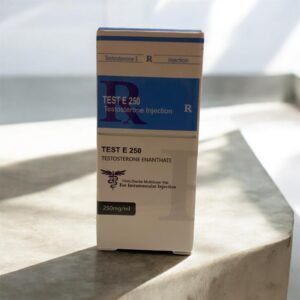Description
The drug tirzepatide is a modern drug used to treat type 2 diabetes. Below you will find a description of the history of its creation, how it works, the effects achieved during treatment and side effects.
History: Tirzepatide was developed as an innovative drug for the treatment of type 2 diabetes by the pharmaceutical company Eli Lilly and Company. Work on this drug began in the 1990s, and its development was the result of research into new diabetes treatment strategies that aimed to improve glycemic control in patients.
How the drug works: Tirzepatide is an analogue of glucagon-like peptide 1 (GLP-1), which is a hormone produced by the small intestine in response to food intake. The drug works in several ways:
Insulin stimulation: Tirzepatide increases the release of insulin by pancreatic cells, which helps lower blood glucose levels after meals.
Inhibiting Glucagon Release: Reduces the release of glucagon, a hormone that increases blood glucose levels.
Slowing stomach emptying: This medication increases the time that food stays in the stomach, which helps control glucose levels after meals.
Effect on the feeling of satiety: Tirzepatide can help patients control their appetite and the amount of food they eat.
Effects achieved during treatment: Many benefits can be achieved during treatment with tirzepatide:
Improves lipid profile by increasing HDL cholesterol and reducing LDL and triglyceride levels.
Improving glycemic control: This medicine helps maintain stable blood glucose levels.
Weight loss: Many patients notice weight loss with tirzepatide, which may be beneficial, especially if they have type 2 diabetes and are overweight or obese.
Reducing the risk of diabetes complications: Better glycemic control can help reduce the risk of complications such as heart disease, nephropathy and retinopathy.
Side effects: Tirzepatide can cause some side effects, although not everyone gets them. The most common are:
Stomach problems such as nausea, vomiting, diarrhea.
Stomachache.
Allergic reactions (although they are rare).
It is worth noting that each patient may react to the drug differently, so it is important to regularly monitor your health during treatment and consult your doctor if any disturbing symptoms occur.
Tirzepatide is a prescription drug, and your doctor will decide on the appropriate dose and treatment plan based on your individual needs. Always consult a healthcare professional before starting tirzepatide for diabetes.




Reviews
There are no reviews yet.